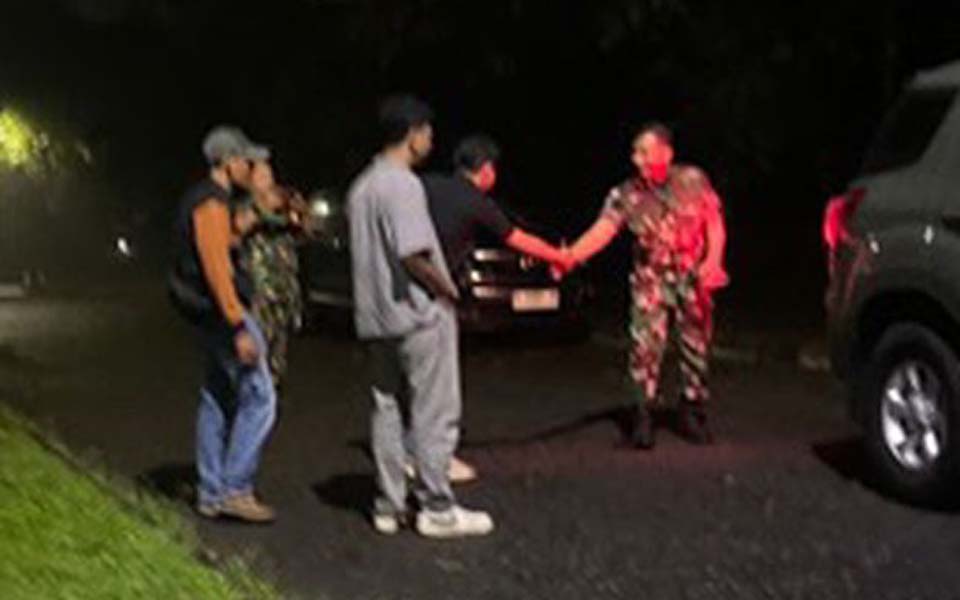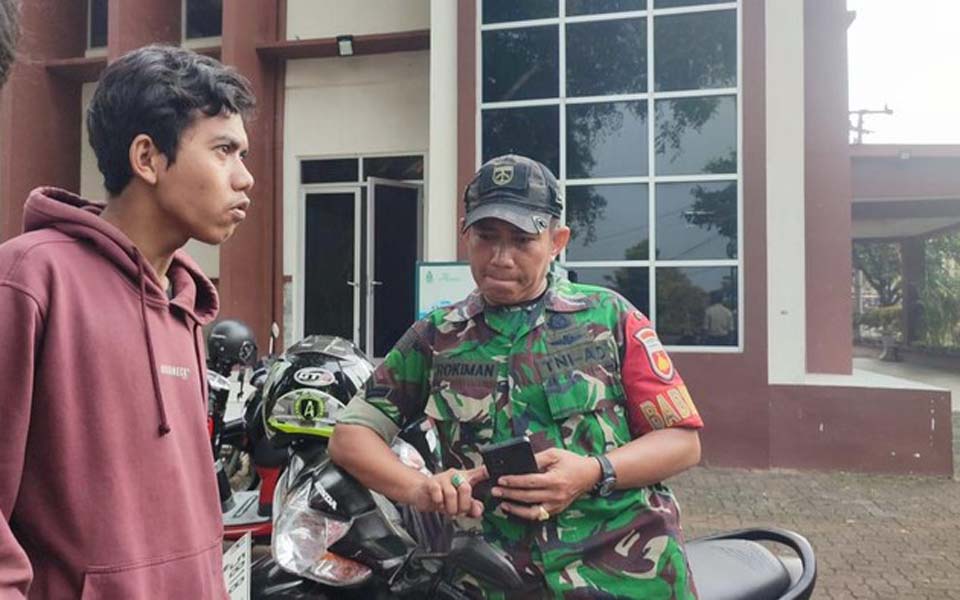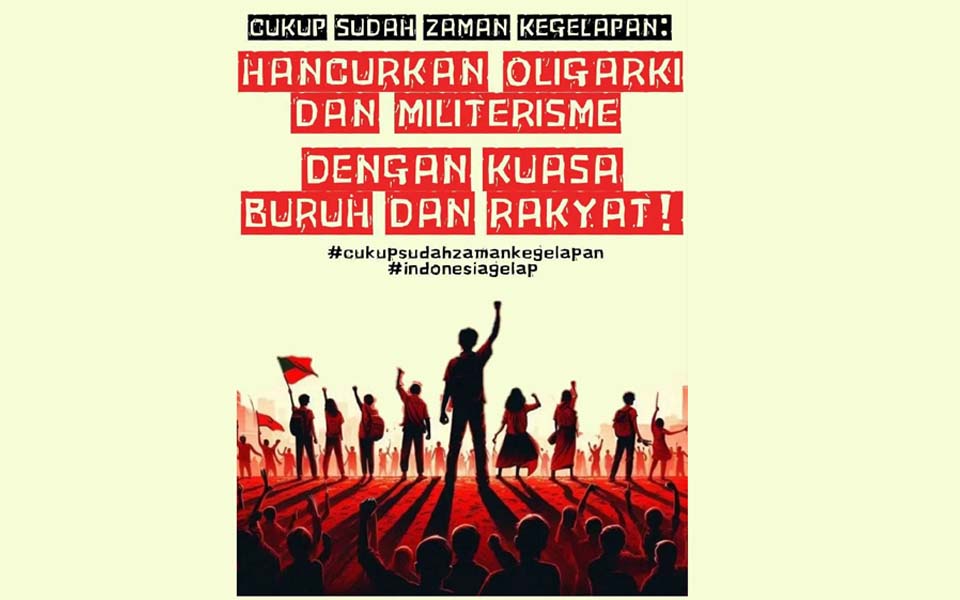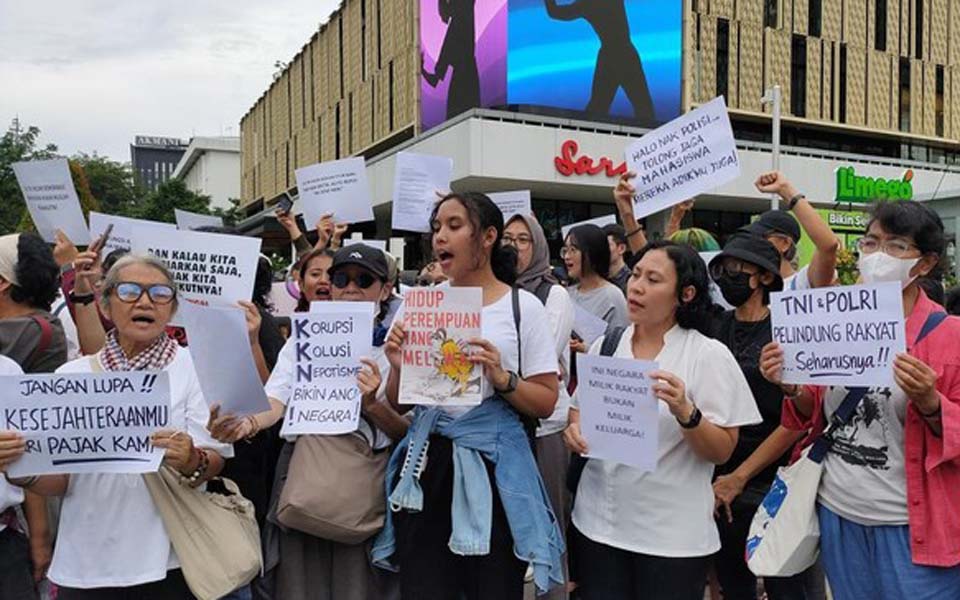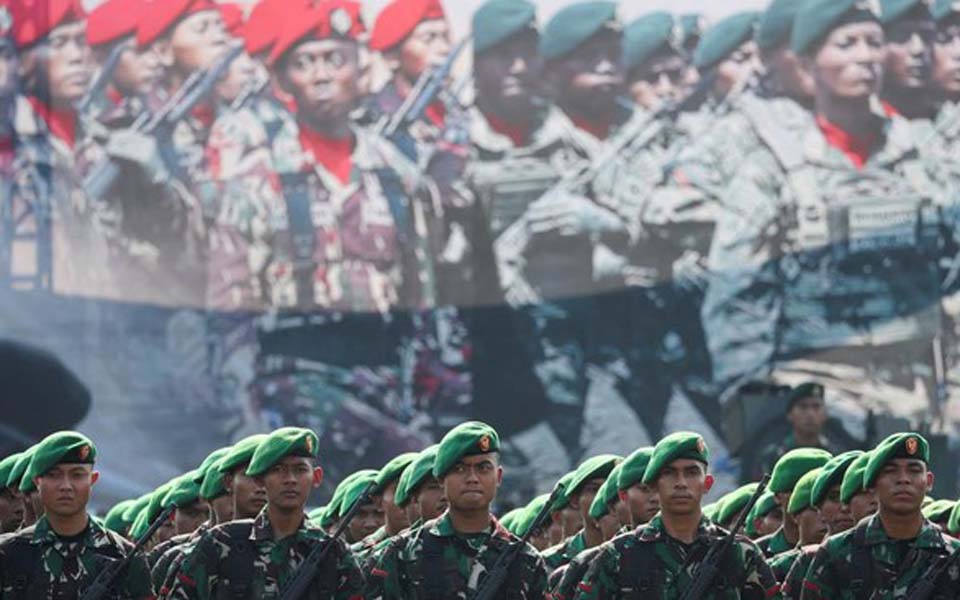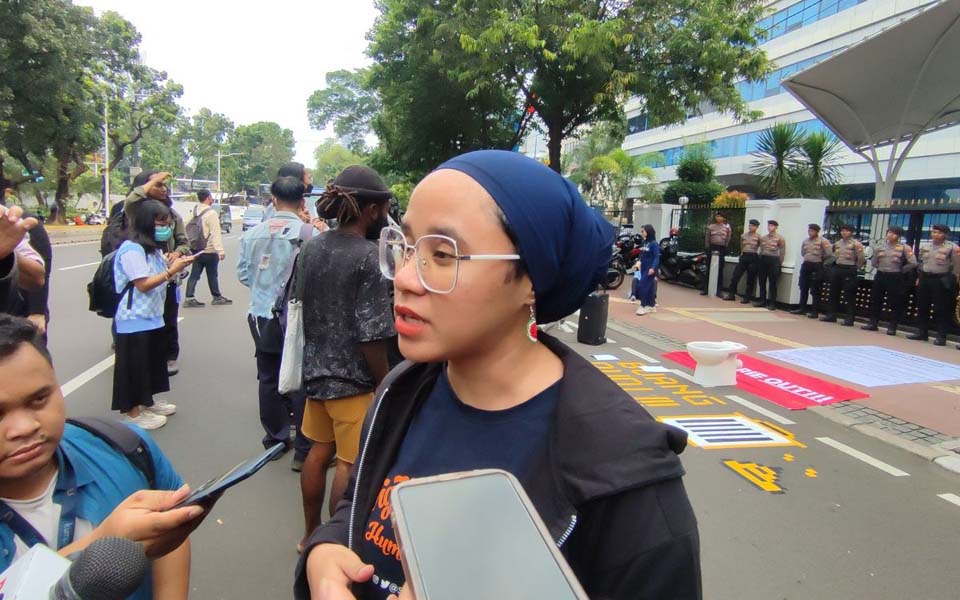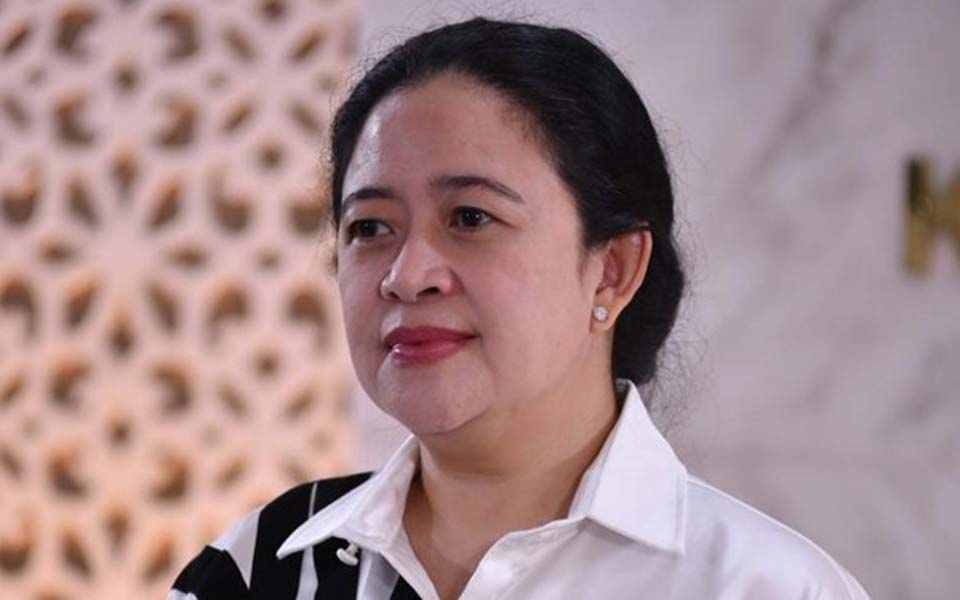Jakarta, Indonesia – The government sponsored national symposium on 1965 was held in April although reverberations over the forum, which for the first time brought together victims and perpetrators of the bloody 1965 tragedy, are still being felt to this day.
Moreover the final recommendation that is to be submitted to President Joko “Jokowi” Widodo is still being drafted by a symposium team headed by Presidential Advisory Council (Wantimpres) member Sidarto Danusubroto. According to information received by Rappler, the recommendation will be completed today.
While the recommendations have yet to be completed, the debate on the symposium which was held at the Aryaduta Hotel in Central Jakarta on April 18-19 April continues.
A debate is not just taking place among the general public but also between retired Indonesian military (TNI) officers. The reason is that retired Lieutenant General Agus Widjojo, who acted as the chair of the symposium’s steering committee, is also the son of the late General Sutoyo Siswohardjo, one of the generals kidnapped and killed in 1965.
Post the symposium, there has been an internal rift among retired officers with some, instead of contributing opinions to the points in the recommendations, explicitly rejecting the symposium altogether.
One of these is Defense Minister Ryamizard Ryacudu. Ryacudu, who graduated from the military academy in 1974, held a goodwill meeting with the Islamic Community Forum (FUI) and the Indonesian Ulama Council (MUI) at the Kartini building in South Jakarta today.
Although packaged as forum to respond to the [alleged] rise of the Indonesian Communist Party (PKI) following the arrest of people selling or wearing T-shirts and badges with symbols of the hammer-and-sickle, one of the issues discussed at the forum was the 1965 national symposium.
Concerns over the 1965 symposium were first raised by Retired Army Generals Association (PPAD) chairperson retired Lieutenant General Suryadi. “We are concerned about the government’s position, people who rebelled are being facilitated. If the government is facilitating this, how is it being paid for?”, asked Suryadi.
Suryadi alluded that 1965 symposium was more to facilitate the families of the victims of the mass killings and those who were jailed in 1965. And it was not just the symposium that was questioned, Agus Widjojo name was also mentioned.
Suryadi questioned President Widodo’s decision to appoint Widjojo, a child victim of the 1965 tragedy as the governor of the National Resilience Institute (Lemhanas). “Who is he anyway?”, asked Suryadi. Yet, said Suryadi, there were many other retired TNI officers who would have been better candidates than Widjojo.
FUI Secretary General Ahmad Al Khattah also sided with Suryadi criticising the security personnel that provided protection for the 1965 symposium. “Precisely because at the 65 symposium and the activities at TIM [Taman Ismail Marzuki Cultural Centre] people who sang the song Genjer-Genjer were protected by the police”, he complained.
Ahmad was referring to the 2016 ASEAN Literary Festival held at TIM on May 5-8 which presented a monolog titled The Silent Song of The Genjer Flowers (Nyanyi Sunyi Kembang-Kembang Genjer) at one of the events.
It was after this that Ryacudu summarized the statements of his two colleagues. “This face-to-face [meeting] is very important for us who are loyal to [the state ideology] Pancasila and must be on guard against the danger of latent communism being driven by the PKI”, he said.
He also called on Islamic social organisations to join in safeguarding Pancasila and taking part in the State Defense program. “Today’s threats are multi-dimensional and because of this it isn’t enough for it to just be handled by the TNI”, he said.
Following the event, Rappler approached Ryacudu and asked if he rejected the 1965 symposium and whether a spilt has occurred within the ranks of TNI retired officers following the symposium. “[There’s only] one Pancasila, if [you’re] not Pancasila, we are of dissenting views”, he replied emphatically.
Ryacudu also admitted that he is not happy with how things are progressing post the symposium, namely the exhumation of mass graves being driven Coordinating Minister for Security, Politics and Legal Affairs Luhut Pandjaitan. “Specifically the exhumation of graves, if everyone gets angry what then? This isn’t right”, he said.
‘Agus Widjojo isolated’
Prijanto, a former deputy governor of Jakarta and retired TNI officer who graduated from the military academy in 1975, says that before the 1965 symposium and the exhumation of the mass graves, the situation was calm. “That’s what caused the split. Things were calm, why exhume the graves? It’s not right”, he said.
Moreover since the aim of the 1965 symposium was to straighten out history, according to Prijanto, there was no history that needed to be straightened out, history was already correct. “Was history indeed not straight? If you want to straighten out history, just go to the national library were the data is”, he complained.
Prijanto said that Widjojo does not have any supporters among the grouping of TNI retired officers who backed him at the 1965 symposium. “Don’t lump them [retired TNI officers] all together, there’s not even 10 [officers] that support Pak Agus Widjojo. He’s alone. Perhaps he has one friend, two people”, he said.
What Widjojo and the 1965 symposium team did, said Prijanto, was opposed by most retired TNI officers. “It was opposed, it wasn’t right. It was something that already didn’t need to be dug up again”, he said.
In addition to this, Prijanto also cites Widjojo’s track record saying he has never gone along with the majority of retired TNI officers. “During the time he was an active [military officer], Pak Agus thought up the idea of dismantling the [TNI’s] territorial [command structure] which employs the Babinsa, the Babinsa is the enemy of the PKI”, he said.
The term Babinsa is an abbreviation of Bintara Pembina Desa, a non-commissioned officer stationed at villages and wards representing the TNI’s regional military commands (Kodam).
So what is Widjojo’s response to this? Speaking to Rappler, Widjojo claimed he was surprised by the odd comments made about the symposium and himself personally. “These are the words of retired officers. As soon as we become retired officer we become civilians, we are free to think and express views”, he said.
Widjojo reminded his other colleagues that many retired TNI officers aside from himself have ended up joining other groups and political parties. “The evidence being that many retired officers have joined different political parties”, he said.
He declined however to comment on there being a split among retired TNI officers over the 1965 symposium saying that it is natural for there to be differences of opinion.
But for how long will these differences of opinion continue? And will these differences have an impact on the final results of the symposium?
What is clear is that FUI, which has the support of Ryacudu and other TNI retired officers, have already declared a counter symposium that will be held on June 1-3. Although the venue has yet to be determined, they continue to insist that they will not accept the results, whatever they may be, from the 1965 symposium.
Notes
1. Ryamizard Ryacudu is a former army general known for his hardline stance on separatism and xenophobic remarks and criticism of rights activists. In 2001 he praised the killing of prominent Papuan independence leader Theys Eluay, saying the Kopassus soldiers who murdered him were “heroes”. He is a close ally of Indonesian Democratic Party of Struggle (PDI-P) chairperson Megawati Sukarnoputri and as army chief of staff during her presidency oversaw military operations in Aceh and Papua resulting in countless civilian casualties.
2. The Javanese folk song Genjer-Genjer, which tells the story of the genjer (lettuce) plant that gained popularity during times of extreme poverty due to its abundance amid high food prices, is associated with the Indonesian Communist Party (PKI) affiliated women’s organisation Gerwani or Women’s Movement which was banned and then demonised by the Suharto’s New Order dictatorship following the 1965 anti-communist purge.
3. The TNI’s territorial command structure mandates the deployment of military command posts and detachments at all levels of the civil administration: provincial, district, sub- district and village. This structure provides the organisational framework for the TNI to act as a political security force at all levels of society.
[Translated by James Balowski for the Indoleft News Service. The original title of the report was Ada gaduh dalam tubuh purnawirawan TNI soal Simposium ‘65.]
Source: http://www.rappler.com/indonesia/132947-purnawirawan-tni-gaduh-simposium-65






